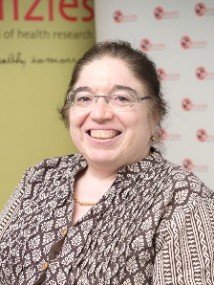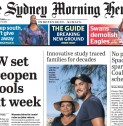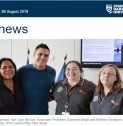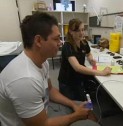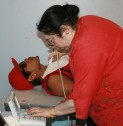Professor Gurmeet Singh
Senior Principal Research Fellow, Head of the Life Course Program, Deputy Head of the Child and Maternal Health Division
Qualifications:
PhD, University of Queensland, 2008
Fellow, Royal Australasian College of Physicians, 2008
Master of Public Health and Tropical Medicine, James Cook University, 2003
Diplomate of the National Board of Examinations (Paediatrics), India, 1989
MD (Doctor of Medicine) In Paediatrics, University of Delhi, 1988
Diploma of Obstetrics and Gynaecology, University of Delhi, 2006
Diploma of Child Health, University of Delhi, 2005
Bachelor of Medicine/Bachelor of Surgery, University of Delhi, 1982
Approved level of HDR supervision at Charles Darwin University:
Primary Supervisor for PhD
Location:
Darwin - Royal Darwin Hospital campus
Biography:
Professor Gurmeet Singh is the director of the life course studies and recently obtained $2.2 million to conduct the next follow-up of the Aboriginal Birth Cohort (ABC), the longest and largest Aboriginal Cohort in Australia. She has dedicated over 18 years to indigenous health in both paediatric medicine and health research capacity in the Northern Territory (NT). Her area of interest is the relationship of early life factors to later health and chronic disease, particularly renal disease.
Professor Singh has been an integral part of the ABC for the past 16 years with involvement in all aspects of the study. She has been influential in forming national and international collaborations and is committed to using the study data to inform policy to decrease chronic disease burden in Indigenous communities.
She has since been instrumental in recruiting an age matched non-Aboriginal Top End Cohort (TEC). She coordinates the Darwin site of the Preterm Kidney Study investigating the impact of prematurity on renal function in collaboration with Monash University.
Concurrently, Professor Singh is a specialist paediatrician at Royal Darwin Hospital and a Senior Lecturer, Northern Territory Medical program. She is passionate about encouraging medical students to actively engage in research. To this end, she has been instrumental in expanding the honours program of the James Cook University School of Medicine to Darwin.
Research Themes
- Child and Maternal Health
- Life Course

